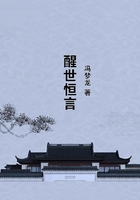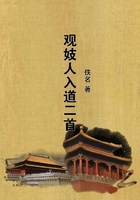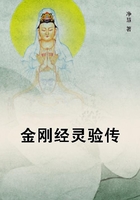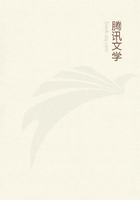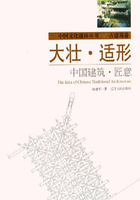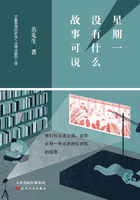Sumter and Marion then proceeded against the post at Biggin, held by Col. Coates of the British army, a spirited officer, with a garrison of five hundred infantry, one hundred and fifty horse, and one piece of artillery. The post at Biggin consisted of a redoubt at Monk's Corner, and the church, about a mile distant, near Biggin Bridge.
This church was a strong brick building, which covered the bridge, and secured the retreat at that point, by way of Monk's Corner.
Biggin Creek is one of many streams which empty into Cooper river.
Of these, it is the most northwardly. On the east of this creek, the road to Charleston crosses Watboo and Quinby Creeks.
The destruction of Watboo bridge rendered impracticable the retreat by the eastern route, and this bridge, accordingly, became an important object to both the British and Americans.
A detachment of Marion's men, under Col. Mayham, was sent forward to destroy the Watboo bridge, and thus cut off the retreat of the enemy.
But the position and force of Col. Coates prevented the approach of Mayham, and he waited the advance of the main body. On the 16th July, he was reinforced by a detachment under Col. Peter Horry, who, assuming the command, proceeded to the attempt upon the bridge.
The enemy's cavalry opposed themselves to the attempt;a short action ensued; they were defeated, and driven back with loss.
The mounted riflemen broke through them, and a number of prisoners were taken.
Horry then dispatched a party to destroy the bridge, and remained to cover the men engaged in the work. But the enemy soon reappeared in force, and Horry, with his working party, was compelled to retire, in turn, upon the main body. Sumter, believing that Coates had marched out to give him battle, took post in a defile, and awaited him;but the purpose of the enemy was only to gain time -- to wear out the day, amusing him, while they made secret preparations for flight.
Their stores were accumulated in the church, which had been their fortress, and, at midnight, the flames bursting through the roof of the devoted building announced to the Americans the retreat of the foe. The pursuit was immediately commenced, and, in order that it might not be impeded, the only piece of artillery which Sumter had, was unfortunately left behind, under Lieut. Singleton. Lee and Hampton led the pursuit until, having passed the Watboo, they discovered that the cavalry of the enemy had separated from the infantry, taking the right hand route.
Hampton then struck off in pursuit of the former, in hope to overtake them before they could reach the river; but he urged his panting horses in vain.
They had completed their escape, and secured the boats on the opposite side, before he could come up with them.
Marion's cavalry, meanwhile, under Col. Mayham, had joined the Legion cavalry in pursuit of the infantry. About a mile to the north of Quinby Creek, the rearguard of the retreating army was overtaken. With this body, which consisted of one hundred men, under Capt. Campbell, was nearly all the baggage of the British army. Terrified by the furious charge of the Americans, they threw down their arms without firing a gun.
Favored by this circumstance, the cavalry of Mayham, and the Legion, pressed forward. Coates had passed Quinby Bridge, and made dispositions for its demolition, as soon as the rear-guard and baggage should have passed.
The planks which covered the bridge had been loosened from the sleepers, and a howitzer, at the opposite extremity, was placed to check the pursuit.
But, as the rear-guard had been captured without firing a shot, their commander was unapprised of their fate, and unprepared for immediate defence. Fortunately for his command, he was present at the bridge when the American cavalry came in view. His main body, at this moment, was partly on the causeway, on the south side of the bridge, and partly pressed into a lane beyond it -- in both situations so crowded as to be almost wholly incapable of immediate action. Coates, however, coolly took measures for his safety. Orders were dispatched to them to halt, form, and march up, whilst the artillerists were summoned to the howitzer, and the fatigue party to the destruction of the bridge.
The legion cavalry were in advance of Mayham's command. Captain Armstrong led the first section. Their approach to the bridge was marked by all the circumstances of danger. They were pressing upon each other into a narrow causeway, the planks of the bridge were fast sliding into the water, and the blazing port-fire hung over the howitzer.
The disappearance of the fatigue party from the bridge would be the signal for it to vomit death upon the ranks of the approaching Americans.
There was no time for deliberation. Armstrong, followed close by his section, dashed over the bridge and drove the artillerists from the gun.
Lieutenant Carrington followed, but the third section faltered.
Mayham, of Marion's cavalry, feeling the halt, charged by them;but the death of his horse arrested his career. Captain Macauley, who led his front section, pressed on and passed the bridge. The causeway was now crowded; the conflict was hand to hand. Some of the working party, snatching up their guns, delivered a single fire and fled.
Two of the legion dragoons were slain at the mouth of the howitzer, several wounded. But the officers remained unhurt. Coates, with several of the British, covered by a wagon, opposed them with their swords, while their troops were hurrying forward to where they could display. Meanwhile, Lee, with the rest of the legion, had reached the bridge, which they proceeded to repair.

